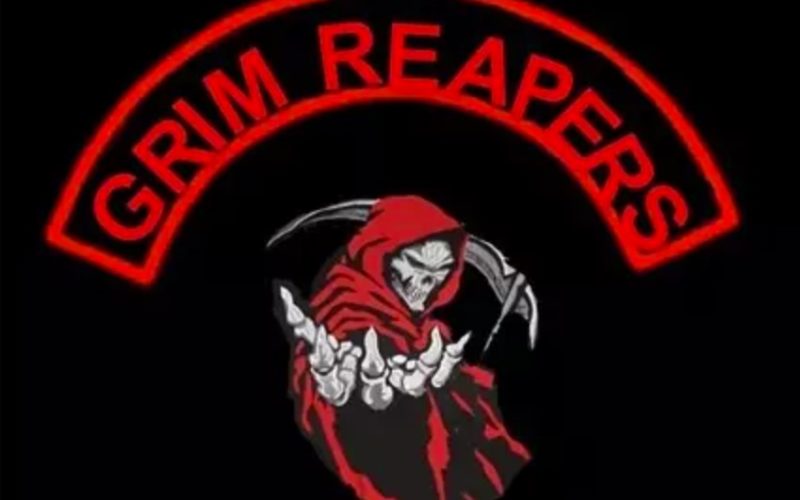Millard County prosecutors unveiled an avalanche of incriminating evidence in a high-profile theft case last week in court.
A preliminary hearing for Travis Zufelt, a Delta business owner, was held in 4th District Court last Wednesday.

Zufelt is one of two people charged with multiple felony counts related to the theft of $600,000 in cash contained in a spare tire belonging to a couple who recently moved to Millard County from California.
Patrick Finlinson, the county attorney prosecuting the case, called four Millard County Sheriff ’s deputies to testify in Zufelt’s preliminary hearing about specific evidence discovered in what Sheriff Richard Jacobson calls an ongoing investigation.
Finlinson revealed in court testimony that federal law enforcement authorities are involved in the case, specifically that the FBI is assisting local authorities in tracing the origins of the cash that was stolen. Jacobson did not wish to comment further on any other role the FBI might be playing in the case.
One suspect, currently incarcerated in the Millard County Jail, is alleged to be an officer of a motorcycle gang considered by federal authorities to be a criminal organization. Finlinson confirmed later the gang element in the case is the nexus for which federal authorities could get involved in a local theft investigation.

Chane Harris, also known locally as Sawdust, is facing multiple felony charges as well for his alleged role in the Aug. 8 theft. He watched Wednesday’s hearing from an internet connection in the jail.
Witnesses told police they believe Harris is the president of a chapter of the Grim Reapers motorcycle club. A club enhancement was earlier added to his charges based on that information.
Harris, Zufelt and Zufelt’s defense attorney, St. George lawyer Douglas Terry, were able to see firsthand the amount of digital forensic evidence, DNA blood evidence, witness testimony and more prosecutors are prepared to tell a jury should the case go to trial.
Finlinson methodically walked through his theory of the caper with deputies and detectives who assembled the evidence. Dep. Lane Gardner, Det. Patrick Bennett, Det. Aaron Jurado and Dep. Tyrell Curtis testified to their specific roles in the case. A written statement filled out by the victims was also admitted into evidence.
At the hearing, Finlinson led Bennett through a complex, detailed portrait of the alleged crime, pairing text messages and phone calls between Harris and Zufelt with surveillance camera footage obtained by investigators of the day in question. The combination created an elaborate display whereby Zufelt and Harris’ minute- by-minute movements that day are tracked alongside their alleged text and voice communications with each other, all documented in call logs before, during and after the theft.
The calls and messages were easily surfaced after numerous subpoenas were issued to multiple telecommunications companies during the investigation—Zufelt had even become angry at one point during the investigation when Bennett caught him attempting to give police a different cell phone than the one connected to all of the communications evidence in the case, Bennett testified.
Finlinson confirmed after the hearing that the actual content of the text messages was not available to investigators because that data is simply not preserved by telecommunications companies for any great length of time.
Still, phone calls and text messaging between Harris and Zufelt in the days leading up to the crime and the days just after were clearly presented—the showcase was meant to damage Zufelt’s supposed claims to investigators of at first not knowing who Harris was and later of feeling threatened by Harris to allegedly participate in the caper, testimony revealed.
Another piece of digital forensic evidence unearthed by Bennett and presented in the case was that of two deleted photographs allegedly contained in Zufelt’s personal cell phone. The photos were of a laser cut key that matched the victim’s car key. The photos were allegedly taken on July 21, two weeks before the theft was reported, and deleted a few days after police began actively investigating the crime.
Bennett testified that he reached out to numerous locksmiths and was told it was possible for a skilled person to cut a replica key from a photograph— though no locksmith was identified who made such a key. Bennett also testified he was told that while such a replica could open trunks and door locks it likely could not start a vehicle, which typically requires the key have a security chip inside.
Zufelt is the owner of Trav’z Tire & Repair, 47 N 400 W in Delta. The victim in the case, called BG in court records— the man told the Chronicle Progress he’d prefer to remain anonymous for this story—told police he brought his vehicle to Zufelt’s shop on Aug. 8 to have an alignment job performed.
The previous month, on July 9, according to numerous affidavits in the case, the victim asked Zufelt to break the bead on his spare tire so that he could retrieve $10,000 in cash. Zufelt, now aware of the cash inside the spare tire, just happened to text back and forth with Harris on that day 23 times, exchanging a few phone calls as well, testimony showed.
During the Aug. 8 alignment work, Zufelt allegedly told the victim he received a call from a local hardware store about coming to pick up items he’d ordered—evidence collected by investigators appears to show this to be a ruse to get the victim away from his vehicle. The call allegedly came from Harris, police testifi ed, not from anyone at the hardware store.
Zufelt and the victim then left the tire shop, traveled to the hardware store and stayed for a few minutes—all this verified by surveillance footage, Bennett testified.
Meanwhile, surveillance cameras also allegedly captured Harris parking his brownish older model pickup truck in a grocery store parking lot near the tire shop, appearing to wait for Zufelt and the victim to leave.
When the pair drove to the hardware store, camera footage appears to show Harris driving toward the tire shop. Harris was gone when Zufelt and the victim returned. And only later in the day, after the alignment job was completed, did the victim discover the spare tire— and $600,000 cash kept inside—was missing from his trunk.
When police were called to the victim’s location to take an initial report of the theft, the victim pointed out what looked like drops of blood inside the trunk where the tire was taken.
Jurado testified to taking swabs of the alleged blood droplets. He sent those to the state crime lab to test for DNA.
Jurado was also involved in the search of several properties tied to the suspects in the case. At the preliminary hearing, he testified that when he joined other deputies and the West Millard Posse in a search of property at which Harris was known to live inside a trailer, numerous pieces of evidence were discovered, including $170,000 in cash, 600 ounces of silver, a letter allegedly written by Harris to his landlord, the property owner, and cigarette butts found in an ash tray next to a bed inside Harris’s trailer.
Jurado also testified that it was the landlord whom Harris allegedly purchased a Harley Davidson motorcycle for that police later recovered.
Harris was allegedly on the lam from police when the search took place, the cash and silver hidden in an ammo can and Tupperware container found in two different parts of the property.
Sheriff Jacobson said the working assumption from investigators is that the silver bullion found was likely purchased with proceeds from the theft.
A “significant” amount of stolen cash remained unrecovered as of last week, he said when contacted Friday by the Chronicle Progress. Finlinson also confirmed a significant amount of money remains missing.
Jurado said he sent the cigarette butts found during the search to the crime lab for comparison to the blood droplets previously found inside the victim’s trunk. The DNA from the blood droplets, according to a state crime lab report, matched the DNA recovered from the cigarette butts found in Harris’ trailer, Jurado testified, placing Harris inside the victim’s trunk.
Zufelt did not take the stand during the hearing.
His attorney subjected witnesses to only brief questioning, spending some time on a discrepancy in the initial police reports, whereby it was detailed that as much as $710,000 was inside the spare tire.
Terry also asked two of the investigators whether they had seen bank statements or called any banks about the origin of the victim’s money. Bennett testified that there were escrow account statements shown to police. Gardner told the defense attorney he was shown screenshots of bank withdrawals by the victim. Finlinson said in court that was an angle of the case the FBI was working.
The defense attorney asked Jurado whether any DNA evidence connecting Zufelt to Harris’ property was recovered. The detective said none was.
Prosecutor and defense attorney submitted the case to Judge Anthony Howell, who reminded all parties that preliminary hearings view the state’s evidence in the most favorable light, with a mind toward whether probable cause exists to bind the matter over for trial.
Though Terry attempted to argue the state hadn’t met its burden of proof on all the obstruction of justice charges against Zufelt—there are three of them, all third degree felonies—the judge disagreed and bound Zufelt over for trial on all charges.
Zufelt is out of jail on a $100,000 bond pending trial.
Howell told Zufelt that as a condition of his continued release he is not to dispose of any real or personal property or make any large purchases without court review. At first the judge also ordered court approval for any business transactions of more than $1,000. Terry objected to the small amount and the court agreed to raise it to $5,000. An accounting of Zufelt’s business transactions will be reviewed by the court and prosecutors on a biweekly basis, Howell ordered. A waiver hearing for Harris is scheduled for Nov. 4.
Make sure you have subscribed to our Facebook page or Twitter to stay tuned!
Source: Millard County Chronicle Progress
